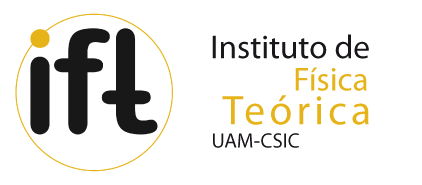Opportunities at Future High Energy Colliders
Home
Workshop dates: June 11 - July 05 2019 (IFT, Madrid, Spain)
Indico page, contains registration and the detailed program (with slides).
Workshop Motivation and Concept:
The quest to discover BSM physics is motivated by fundamental questions left unanswered by the Standard Model, including: Why is the mass of the Higgs boson so small compared to the Planck scale? What comprises the dark matter and what is the nature of its interactions? Why does the Universe contain more matter than anti-matter? What is responsible for the tiny but non-vanishing neutrino masses?
Finding answers to these and other open questions requires advances at the experimental and theoretical frontiers. In this context, there is still a large potential for new discoveries at the LHC. However, it is increasingly evident that at least next generation high energy collider may be needed in order to unravel the puzzles left unexplained by the Standard Model. A number of possibilities are under serious consideration, including
- the International Linear Collider (ILC),
- the Compact Linear Collider (CLIC),
- an energy upgrade of LHC (HE-LHC),
- the CERN Future Circular Collider as e+e- collider (FCC-ee)
- as pp collider (FCC-hh)
- as ep collider (FCC-eh)
- the Circular Electron-Positron Collider/Super Proton-Proton Collider (CEPC/SppC).
Any of these machines would open new frontiers in precision or energy. The ILC, CLIC, FCC-ee, and CEPC would enable electron-positron collisions with higher energy and beam luminosities than have ever been achieved, while the FCC-hh, HE-LHC and SppC would do the same for proton-proton collisions. In addition, the FCC-eh would open new ground in electron-proton collisions.
Well-defined communities of theorists and experimentalists have coalesced around each effort, producing significant studies that elucidate the opportunities. What is less clear is the global view. Is there a need for more than one future collider?
To what extent are the prospectives linear and circular e+e- colliders complementary? To what extent are they synergistic with the high luminosity LHC and the proposed future hadron colliders? How might the results from the high luminosity phase of the LHC affect the opportunities with these other future machines?
The workshop will bring together key theorists and experimentalists to address these questions, aiming at a more coherent, global view of the opportunities and rationale for the next generation of high energy colliders.
Program of the workshop:
- first week: dark matter and implications from cosmology
- second week: origin of lepton and quark flavour structure; fundamental symmetry tests
- third week: electroweak symmetry breaking; naturalness
- final week: discussion of complementary of the different collider opportunities as pertains to the physics themes.
Throughout the program, i.e. in particular in each of the topics addressed each week, the following questions will be addressed:
- What will be the "value added" of each prospective collider?
- What are the synergies and/or complementary aspects of each collider option?
- Are there well-defined targets in precision or mass reach that should guide the future energy frontier program?
- What key theoretical and experimental developments are needed in order to realize the opportunities of the next generation colliders?
Each day we will hold one (or max. two) invited talks in the morning. In the afternoon a dedicated discussion session will take place, where shorter contributions of the participants will be included.
Workshop organization:
- As minimum stay one week is recommended.
- Workshop fee: one week 100 Euros; more than one week (or multiple stays) 150 Euros.
- Financial support can be requested (only for participants who stay at least for one week).
- Talks can be requested (see above).
- About 20 offices/office spaces can be allocated to the participants each week.
© 2012-2013 Institute for Theoretical Physics UAM - CSIC










